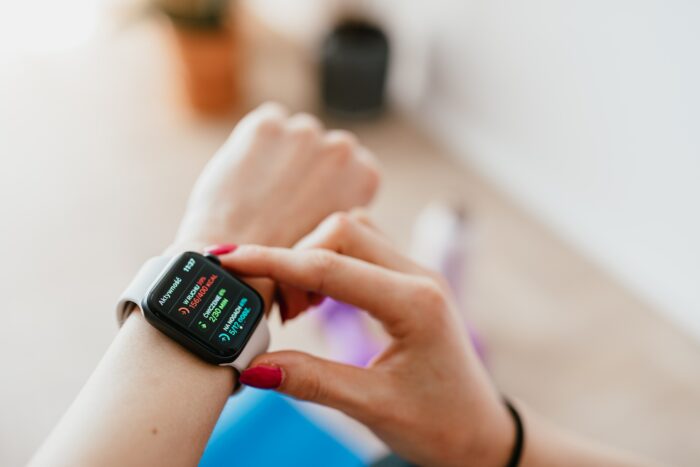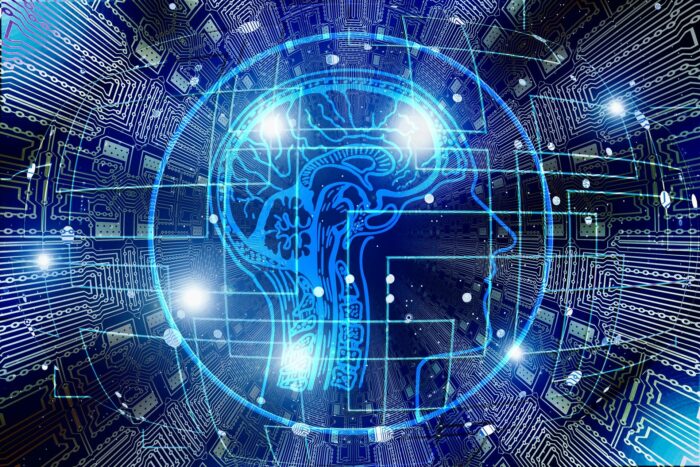Digital transformation in health tech
These days, most people are used to managing things like their bank account and utility suppliers over their smartphones. The healthcare sector on the other hand has been slow to adopt this approach but is now catching up and this can be seen in areas like patient registration, patient data and more. These evolving solutions will continue to get better and already go well beyond the storage and collection of data into areas such as diagnosis and assistance in drug research and development. With so many exciting developments already up and running, let’s take a look at the health tech trends that are making the biggest impression.
Data health
We all know that when it comes to our health, prevention is better than cure and wearable tech, once a consumer accessory, is now leading the charge in that direction. In terms of applying wearable tech to healthcare, it can be used to track health data as well as be used for treating or monitoring patients in real-time, wherever they are. This means that a health professional can look at a patient’s data and pre-empt any issues before they become a problem and most likely before the patient is even aware.

Telemedicine in health tech
During the pandemic, you will have noticed that visiting a doctor would normally involve a video consultation. This is not just a pandemic response, though as other telemedicine technologies are also giving us greater opportunities for remote interaction between patients and healthcare professionals. What’s more, with telemedicine apps, it is possible to not only video consult with the doctor but also access the patient’s medical records on the spot.
Blockchain in data security
With the sensitive nature of personal medical information, it is only right that it should receive special protection when it is stored in the cloud. And the good news is that there have been new developments in data security. By integrating electronic health records into a blockchain system, patient data can be encrypted, only authorized users can access it and every transaction is recorded in the ledger making everything much more secure. Additionally, blockchain systems can also be used to handle clinical study information, case data and data from wearable devices.

Virtual Reality solution for pain relief and simulations
Already successful in other industries, Virtual Reality hadn’t really been used, until recently, in the healthcare sector but the implications of what it can achieve are game-changing. VR can be used throughout the whole process to tell patients about the upcoming treatments, for replacing pain medication or even educating medical students in procedure simulations. VR can also be along with hypnosis for pain relief during local anesthesia surgery, reducing patient anxiety and stress. It also enables a faster patient recovery process. Besides clinical purposes, the usability of VR has been noticed in the patient experience, where it can be used to distract patients while they are in the waiting room.
AI & deep learning relieving the clinical burden
AI is having an amazing effect on the healthcare industry, particularly in regard to accuracy and efficacy. It is simplifying clinical life for healthcare staff by assisting or completely performing tasks that would be otherwise done by humans. As an example, AI can be used to assist with specific diagnoses and is the ideal tool for calculating risk. By removing human error from the equation, AI can analyze a biopsy, analyze images more consistently and process data faster. It can also determine if a test result is definitely true or false and propose that result for further investigation.

Early detection
AI software can be used in predicting lung or breast cancer risk which helps assist the correct monitoring of these risk groups and in that way, help with the early detection of cancer. And, as we all know, the earlier the diagnosis, the better chances of beating the disease. This makes AI a potentially life-saving technology. What’s more, computers can find tumors in patient’s scans of patients more accurately than even trained radiologists. AI programs can interpret mammograms and process patient data 30 times faster than humans and with 99% accuracy.
Business development in the health tech domain
When it comes to sales in the health tech domain, business development activities are crucially important, especially in the international landscape. That’s why the business development and market entry strategy must be adjusted on a country-to-country basis. Additionally, the purchase conditions and regulations vary whether you are selling medical devices or software solutions and that’s on top of the different health sector regulations between countries. To improve your chances of success, it would be wise to consider an external partner who understands the target market regulations, has experience in this domain and knows how to sell these complex technological products or solutions.
Interested in discussing how outsourcing your sales activities could work for your organization in the health tech domain? Leave us a message. We’d be keen to schedule a call.
